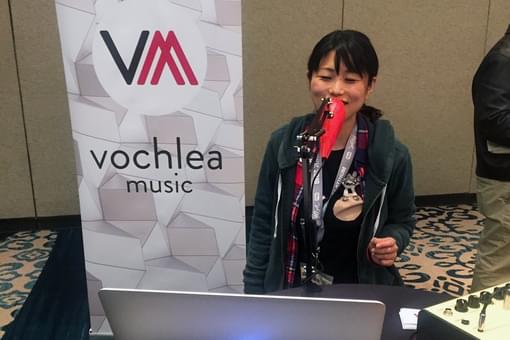AI: The future of music creation?
Categories: Technology

The evolution of music creation has always been rife with controversy and resistance. Take the words of early 20th century classical guitar virtuoso Andres Segovia.“Electric guitars are an abomination, whoever heard of an electric violin? An electric cello? Or for that matter an electric singer?” But as Segovia probably knew; breaking barriers and ruffling feathers is the backbone of art and music.
As with evolution of technology in any industry, the sea of change pays no respect to protests from the old guard. These days, electric violins, cellos and even singers are commonplace. As for electric guitars? Last year over one million electric guitars were sold in the US. Electric guitars may now be mainstream, but the music industry is still rife with technological resistance, and the enemy of today is artificial intelligence (AI).
Like any advancement, from multi track recording to sampling, what some people see as a weapon, others see as a tool. AI is no different; companies using AI in the music industry can broadly be split into two camps: those trying to replace human creation and those aiming to augment it. My company, Vochlea Music, sits firmly in the latter group. We’re developing an AI audio engine capable of real-time vocal recognition. It will allow people to control software instruments and trigger audio samples, all by using their voice. Imagine triggering live drum samples through beatboxing, your vocal ‘twanging’ controlling an awesome guitar solo, or applying effects such as ‘wah-wah’ vocally.
With this technology, anyone can control any instrument, simply through vocally mimicking it. This is not only a tool for amateur music creation, but that can also open up composition to people without instrumental training. Like any musical instrument, its uses are limitless and evolving. At a recent demo in Barcelona, one excited user asked me if the technology could be used to translate the voice into different animal sounds. The answer technically is yes. But equally, it’s not something that had ever crossed my mind! However, who am I to dictate how people should use the technology? That’s what music and art creation is all about.
In March, I flew out to South by Southwest, an international technology, film and music festival in Austin, Texas. Vochlea Music were finalists in the Entertainment and Content category of their annual pitching competition. It was an exciting, albeit intimidating, prospect, due to the strong reputation of the competition. 11 years ago, a little-known company called Twitter had launched on the same stage. But we were at an advantage. AI is a hot topic and everyone wants to be told how the technology can assist and augment the human experience, rather than replace it.
Maybe one day someone will be writing a blog post about the futile resistance to machine domination in music creation. Perhaps they’ll bring up this quote from me, but I’ll risk it anyway. AI will not fully replace human music creation, but it is going to become so intertwined with production, musical programming and composition that it will be no more controversial a tool than the electric guitar. And for all those that still hate the idea, the modern-day Andres Segovias, it’s worth noting that acoustic guitar sales still outstrip electric by nearly two to one.




